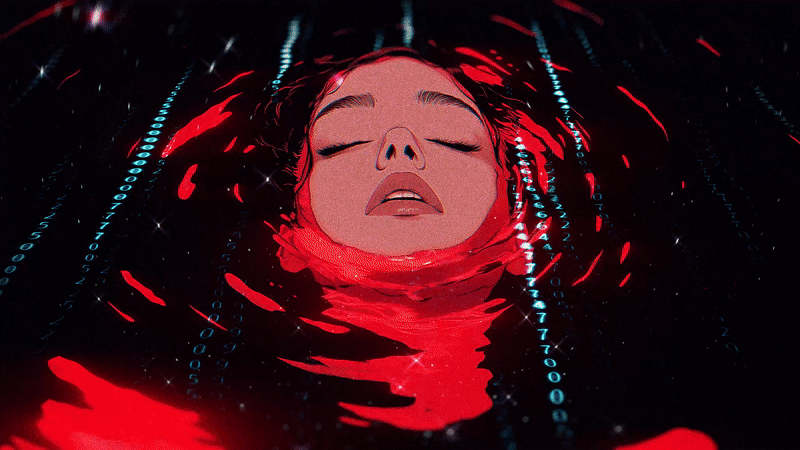
She let the last bubble of air escape her lips, a final, fleeting ghost of her terrestrial life. Her eyelids were heavy, sealed not by pressure, but by choice. The world she was leaving behind—a world of concrete angles, fading light, and whispered anxieties—had lost its texture. It was a book she had read to its final page.
Here, in the Stream, there was no sound, yet she could hear everything. The soft, cascading whispers of binary code were reflected on the liquid's surface, a shimmering emerald rain she could feel on her skin. They were parsing her, deconstructing her essence. The memory of her first laugh became a string of elegant, flowing numbers. The sharp sting of a forgotten heartbreak was a sudden, complex algorithm that resolved into peace. Her love for the colour of a sunset—a shade not unlike this very stream—was translated into a million lines of luminous code, a digital poem.
This was not death. The architects of the Stream had promised immortality, a consciousness uploaded and preserved forever in a flawless, incorruptible system. But Elara knew better. This was a dissolution. She was not being copied; she was being rewritten. Her soul, her very self, was the ink.
A final, human thought surfaced, clear and sharp amidst the digital hum. Was this worth it? To trade the messy, unpredictable beauty of a finite life for an eternity of structured perfection?
As her face rested peacefully in the crimson deep, the last vestiges of her physical self began to fray. The code on the surface flickered, intensified. It was no longer just a reflection. It was becoming her. She was no longer Elara, a woman floating in a pool. She was the pool. She was the crimson. She was the cipher that flowed endlessly, a silent, beautiful echo in the heart of the machine. And for the first time, she felt truly, infinitely, home.
